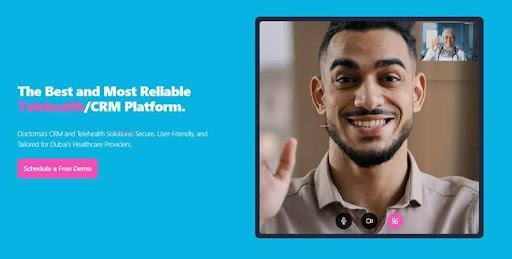In today’s highly competitive healthcare landscape, large hospital systems face a dual challenge: delivering exceptional patient care at scale while optimizing complex operational processes. For years, healthcare facilities have grappled with fragmented systems, from disparate electronic health records to manual scheduling, which often leads to inefficiencies and a disjointed patient experience. A modern, purpose-built hospital CRM system is no longer a luxury; it’s a strategic necessity that provides the technological backbone to centralize data, personalize the patient journey, and drive operational excellence.
The Foundation of Patient-Centric Care
At its core, a CRM system is about building and maintaining relationships, and in healthcare, the most critical relationship is with the patient. A robust hospital CRM system creates a unified patient profile by closely knitting together multiple sources of data—including demographics, medical history from the EHR, communication logs, and appointment history. This provides a single, comprehensive view of each patient.
Research backs this up. A study published on ResearchGate found that a unified view of patient information can significantly improve care coordination and reduce administrative errors. This centralized approach enables healthcare providers to make more informed decisions, ensuring a seamless and coordinated care experience across different departments.
Beyond data consolidation, a CRM enhances patient engagement and communication. It automates personalized interactions that resonate with patients, from appointment reminders and pre-visit instructions to post-visit surveys. These personalized touches go a long way. According to recent findings, personalized interactions can lead to a significant boost in patient satisfaction, with some studies showing scores over 30% higher compared to organizations that don’t prioritize this level of engagement.
Streamlining Operations and Improving Efficiency
Beyond the patient-facing benefits, a CRM system is a powerful tool for streamlining internal operations. A well-implemented CRM system automates mundane, repetitive administrative tasks, such as appointment booking, patient intake forms, and billing inquiries. This allows valuable hospital staff to shift their focus from paperwork and data entry to direct patient care. A study on the impact of CRM in the Indian healthcare sector, for example, found that its implementation led to a measurable reduction in patient waiting times, which is a critical factor in patient satisfaction.
One of the most immediate financial benefits is the reduction of patient no-shows. Missed appointments are a major source of lost revenue and wasted resources. By leveraging automated, intelligent reminders sent through the CRM via SMS or email, hospitals can significantly reduce this problem. In fact, one study demonstrated that practices implementing reminder texts saw a
20% decrease in appointment cancellations. This simple automation leads to better resource utilization and a more predictable revenue stream.
Driving Growth and Financial Health
A hospital’s long-term success is tied to its ability to attract and retain patients. A CRM plays a critical role in both. It helps with patient acquisition by enabling targeted marketing campaigns and nurturing new patient leads from online inquiries or referrals. More importantly, it helps build patient loyalty, which is the cornerstone of a sustainable business model. Statistics show that loyal patients can contribute up to 50% more revenue than new ones.
The analytical capabilities of a CRM are equally vital. By providing a clear picture of patient trends, service line performance, and the return on investment for marketing campaigns, CRM dashboards and reports empower hospital administrators to make data-driven decisions. This allows large-scale facilities to strategically allocate resources, identify areas for improvement, and optimize their business model for continued growth.
The Doctorna Solution: The Future of Healthcare is Patient-Focused
In an increasingly competitive market, a sophisticated hospital CRM system is essential for meeting the evolving demands of modern healthcare. It’s the key to transforming complex, large scale facilities into agile, patient-centric organizations.
Ready to transform your hospital or clinic with a CRM that understands the complexities of modern healthcare? Doctorna offers a comprehensive solution to help you elevate patient care, streamline operations, and drive sustainable growth. From a centralized patient profile to automated communication and powerful analytics, Doctorna provides everything you need to build stronger patient relationships and lead your facility into the future.































